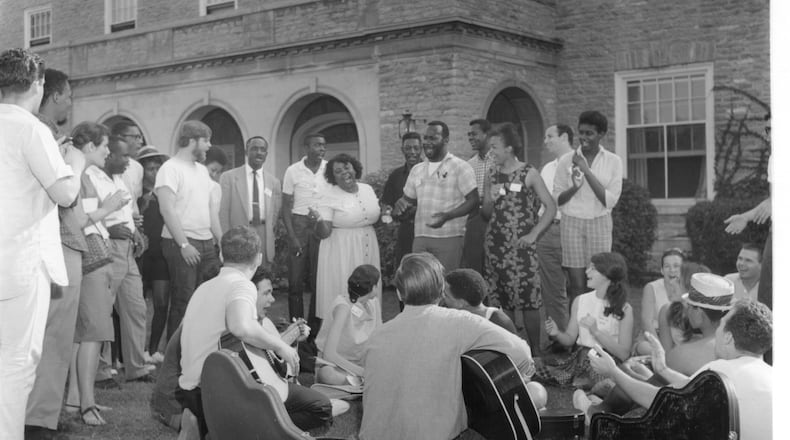RELATED: Miami commemorates 50th anniversary of Freedom Summer (June 2014)
The U.S. Senate unanimously passed the U.S. House bill that would initially include historic sites identified by the National Park Service's Civil Rights Initiative, such as the Mason Temple in Memphis, Tenn., where Martin Luther King, Jr. delivered his "Mountaintop" speech the day before his assassination, said U.S. Sen. Sherrod Brown, D-Ohio, an initial co-sponsor of the Senate's companion bill. He said there is an opportunity for additional sites to be added, like Miami University's Western Campus in Oxford, where students trained to register African American voters in Mississippi during Freedom Summer.
In 1964, hundreds of volunteers, many of whom were white college students, trained in Oxford before they traveled south to register black voters and set up freedom schools. Around 800 people went through orientation training from June 14-27 at the Western College for Women, which is now part of Miami University's Western campus. Michael Schwerner, 24, James Chaney, 21, and Andrew Goodman, 20, were murdered in Mississippi soon after leaving Oxford.
The bill, which passed the U.S. House by voice vote in July, has been sent to President Trump's desk to be signed. U.S. Reps. Lacy Clay, D-Missouri, and Jason Smith, R-Missouri, sponsored the bill. Sen. Lamar Alexander, R-Tennessee, introduced the Senate's companion bill.
“By working with our National Park Service to honor the key sites and moments of the Civil Rights Movement, we can help preserve the legacy and struggle of those who risked their lives to demand full and equal participation in our democracy,” Brown said. “It’s important to learn from their stories, and this network is one small way we can help educate the next generation.”
About the Author
